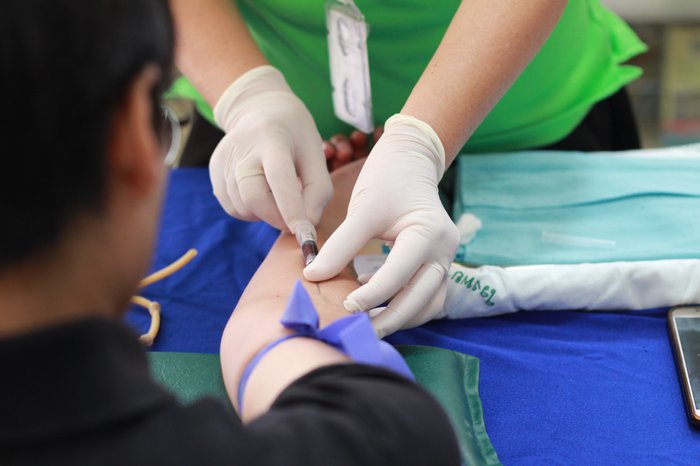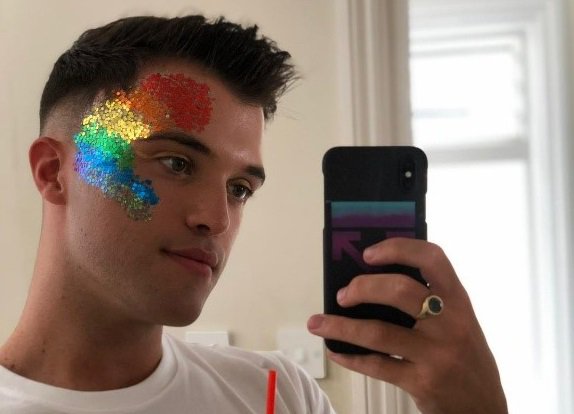“For too long, stigma and outdated ideas have prevented gay men from helping people with blood cancer”
New legislation has come into effect which means it’s now easier for men in relationships with men to give blood. Read on to find out more about these new rules, why this is good news for the blood cancer community, and what it means for people like Todd.

Up until now giving blood hasn’t been easy for men who have sex with men, as previously this group has been required to wait 3 months after having sex before they’re able to donate. However – that’s now changing.
What's changed?
From the 14th June 2021 (World Blood Donor Day), men who have sex with men and who have had the same partner for 3 months or more will now be able to give blood at any time.
Assessments of whether you can give blood will be based on sexual activity, not gender or sexual orientation. NHS Give Blood have said that:
- They will now ask all donors if they have had a new sexual partner, or multiple partners, in the last 3 months
- Anyone who has had anal sex with a new partner or multiple partners in the last three months will not be able to give blood at that time, regardless of their gender or their partner’s gender.
- The changes mean many gay, bi-men and men who have sex with men in a long-term relationship will now be able to donate blood at any time.
This change comes following recommendations from the FAIR (For the Assessment of Individualised Risk) steering group and in line with the latest scientific evidence.
Why this is good news for our community
Blood transfusions are a key treatment for many blood cancer patients, with around 20% of all transfused red blood cells given to people with blood cancer as part of their treatment.
This is because blood cancer and treatments for blood cancer can affect how your body makes blood cells. Blood transfusions do not treat the blood cancer itself, but they do give you healthy blood cells if your body isn’t producing its own. This can help relieve symptoms and side effects.
The more people who can easily donate blood the better, as this means more blood is available to be given to people with blood cancer to help improve their quality of life.
Todd's story
Todd Cooper is a Doctor who lives in Manchester. He studied Medical Science in Birmingham before qualifying as a Doctor this summer. He tells us his story of donating blood as a gay man.

I was a regular blood donor from the age of 17-21 before coming out as gay during medical school, when I had to stop giving blood due to the previous rules.
I’m so excited that the regulations are changing to treat gay people the same way as straight people
There is no doubt that at a population level, unprotected gay sex is riskier than heterosexual sex for transmitting viruses; but it’s also very clear that individual risk assessments can eliminate this risk. Coupled with enhanced testing methods of the donation, blood donation from gay men can be made just as safe for the recipient!
I think the thing I’m most excited about is what this says for progress with regards to equality.
Gay sex is often stigmatised as dirty or unclean. Similarly, people living with HIV are also described with the same vulgarities. Neither of these things are true but of course blood donation needs to be made extremely safe for the recipients. I think this move not only tackles stigma but provides safe blood to patients in need.
For too long, stigma and outdated ideas have prevented gay men from helping people with blood cancer, and this move should hopefully increase blood supplies!
I’m O- negative which means I’m a universal donor and my blood is constantly in demand because of its rarity and massive amounts of usage in the NHS. It was so embarrassing to receive letters and calls from NHS Blood asking me to donate and having to explain the reason why I couldn’t, even though I knew that gay men could be risk assessed prior to donation in the same way our straight counterparts are.
Giving blood is literally lifesaving. It’s so easy, you get free food, you get the lovely conversations with the friendly nurses who always look after you AND you know that the blood you made without even thinking about it has saved someone’s life. The best feeling in the world is when you get a text a few weeks later to tell you that a patient received your blood!
For gay men, I think it’s now particularly important. So many people have fought for this for a long time, and it’s time for us to step up and prove that individualised risk assessments are not only a sensible policy for NHS blood donation, but a lifesaving one!
Head to the NHS Give Blood website to register as a blood donor today.

Want to read more stories like this?
Join our mailing list to get stories like this delivered directly to your inbox every month.
